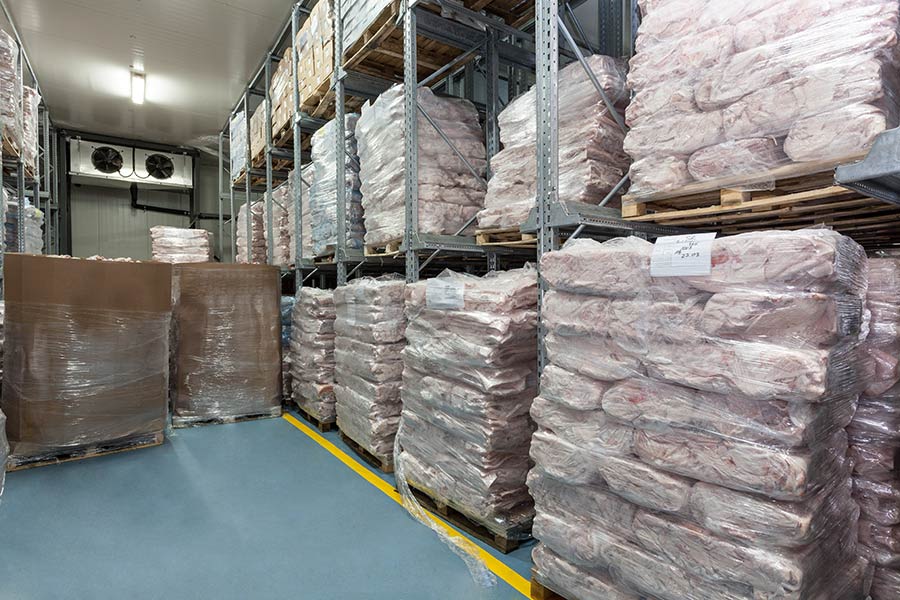Resources
What Does A 3PL Company Do?
 Warehousing companies are reliable and helpful businesses that are imperative to fulfilling nationwide shipments. But, these powerful entities aren’t solitary; they often depend on logistics and external services from other parties to manage their responsibilities. These connections are essential to ensuring that all kinds of shipments arrive on time and are delivered as efficiently as possible. In the shipping world, companies need outsourcing, like 3PLs, to connect all moving parts for direct and cost-efficient transportation.
Warehousing companies are reliable and helpful businesses that are imperative to fulfilling nationwide shipments. But, these powerful entities aren’t solitary; they often depend on logistics and external services from other parties to manage their responsibilities. These connections are essential to ensuring that all kinds of shipments arrive on time and are delivered as efficiently as possible. In the shipping world, companies need outsourcing, like 3PLs, to connect all moving parts for direct and cost-efficient transportation.
What is a 3PL?
In Lamen’s terms, a third-party logistics (3PL) company is a serviced provider that handles outsourced responsibilities and procedures. This includes managing one or more facets of warehousing and shipment to ensure everything is transported and delivered smoothly. A 3PL can be responsible for ordering, inventory management, quality insurance, packaging, or processing returns. For any duty associated with shipping and storage, a 3PL may be necessary or extremely handy.
These 3PL companies have become essential in modern supply chain management. By outsourcing logistics functions to businesses with expertise, companies can focus on their core responsibilities and enhance overall efficiency. Associating with 3PLs is particularly crucial for companies involved in warehousing or shipping, where logistical complexities can significantly impact successful deliveries.
Core Functions of a 3PL Company
Third-party logistics companies have many different functions, directions, and expertise. One of the most essential functions of a 3PL for warehousing companies is transportation management. This includes arranging and optimizing the transportation of goods from suppliers directly to the customers placing the orders. 3PL providers often have established relationships with various carriers, allowing them to negotiate better rates and provide a range of shipping options. They also coordinate and track shipments, ensuring timely and cost-effective delivery.
Transportation isn’t the only part of the supply chain that 3PLs handle. These companies can offer warehousing solutions, including storage, inventory management, and distribution services. These warehouses are strategically located to ensure quick and efficient delivery to various markets. Warehousing services also include managing stock levels, ensuring that products are available when needed, and reducing the risk of overstocking or stockouts.
Outsourcing a company is also handy for fulfilling all facets of ordering and shipping. Ordering fulfillment involves the complete process from receiving an order to delivering it to the end customer, which requires plenty of moving parts that need assistance. 3PL providers handle order picking, packing, and shipping for smoother delivery times and shipping efficacy. Advanced fulfillment centers, from barcode scanning to automated sorting systems, use high-end technology to ensure accuracy and efficiency. This process is critical for online businesses, too, where timely and accurate order fulfillment is an undeniable prerequisite.
For one warehousing company, inventory can quickly pile up and get out of control. Specified 3PL companies use advanced inventory management systems to monitor stock, forecast demand, and plan re-ordering needs. This helps reduce carrying costs and avoid shortages while ensuring a company doesn’t have to manage its inventory without help or necessary tools.
If deliveries or shipments are wrong or damaged, 3PLs can handle reverse logistics, like returning customer packages to a warehouse or facility. Alongside returns, reverse logistics includes exchanges, product inspection, and recycling. 3PL providers manage returns efficiently, handling the logistics of receiving, inspecting, and restocking returned items thoroughly. This is particularly important for e-commerce businesses, where return rates can be too high to deal with independently.
Why a 3PL Company is Important
Partnering with a 3PL provider offers several vital advantages for warehousing and shipping companies. From cost efficiency to improved organization, third-party businesses are undeniably necessary for a prosperous supply chain.
Saving money is a definite benefit of 3PL relationships. By utilizing the infrastructure and expertise of a 3PL, companies can avoid the lofty investments required to build and maintain their own logistics network. Outsourcing companies for logistical work, packaging, routing, and transportation saves on external funds needed for optimum warehousing.
3PL providers can also scale operations up or down based on demand and supply chain fluctuations. This flexibility allows businesses to handle busy seasons efficiently without the burden of random overhead expenses or understocking inventory.
3PLs also might have better, advanced technology that certain warehousing companies couldn’t access. These businesses utilize high-end technology for inventory management, order processing, and transportation tracking. Warehousing and shipping companies can benefit from these technologies without substantial investments.
Hiring or working with a 3PL company can massively help with expedited delivery and shipping logistics. 3PL companies specializing in logistics have the expertise and staff to manage the complexities of the supply chains. Their experience can improve efficiencies, delivery times, and customer satisfaction.
In today’s competitive business environment, partnering with a 3PL company can provide significant advantages for warehousing and shipping companies. By utilizing the expertise, infrastructure, and technology of a 3PL company, businesses can improve their logistics operations, reduce costs, expedite shipments, and enhance customer satisfaction. Whether through transportation management, warehousing, order fulfillment, or inventory management, 3PL companies play a crucial role in modern supply chain management.

